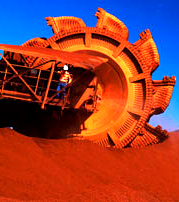ARENA backs better metals
 Federal government funding will boost hydrogen and low emissions iron and steel research.
Federal government funding will boost hydrogen and low emissions iron and steel research.
The Australian Renewable Energy Agency (ARENA) has announced an allocation of $59.1 million across 21 innovative research projects focusing on renewable hydrogen and low emissions iron and steel production.
“We’re backing Australian technological innovation that helps build our clean industries and underpins our ambitions of becoming a renewable energy superpower,” says ARENA CEO Darren Miller.
The funding was initially set at $25 million for each of the two focal areas but was increased due to the high quality of submissions received.
Grants ranging from $1.3 million to $5 million were awarded to Australia's leading universities, research organisations, startups, and companies, facilitating a two-stage R&D effort starting with core research and moving towards commercialisation.
With Australia being the largest global exporter of iron ore - responsible for up to 53 per cent of international exports - the emphasis on reducing emissions in the iron and steel sectors is seen as crucial for global environmental impact.
The research projects span a variety of innovative approaches, such as the development of electric smelting processes and direct electrochemical reduction techniques aimed at drastically reducing greenhouse gas emissions associated with traditional iron and steel making.
The projects promise some potentially revolutionary approaches to hydrogen production and iron processing.
MIH2 Pty Ltd's Low Temperature Direct Electrochemical Reduction for Zero Emissions Iron has been allocated the highest funding of $5 million from ARENA. It aims to create iron at low temperatures using electrochemical methods.
Australian National University's project to ‘de-risk’ large-scale Australian fine-ore hydrogen ironmaking received $4.8 million in funding. By focusing on the risks associated with large-scale operations, the project's total cost of $13.7 million signifies a major step towards cleaner industrial processes.
With a $5 million contribution from ARENA towards a total project cost of $16.5 million, Curtin University's project explores an innovative new method to use a powder for hydrogen export.
By converting hydrogen into a powder form, it proposes a safer and potentially more efficient method for exporting hydrogen, aligning with global energy demands.
RMIT has secured $2 million in funding for a unique approach using solar energy to produce hydrogen directly from wastewater. The scalable and environmentally friendly technology aims not only to produce clean energy but also to treat wastewater, reflecting a dual benefit.







 Print
Print